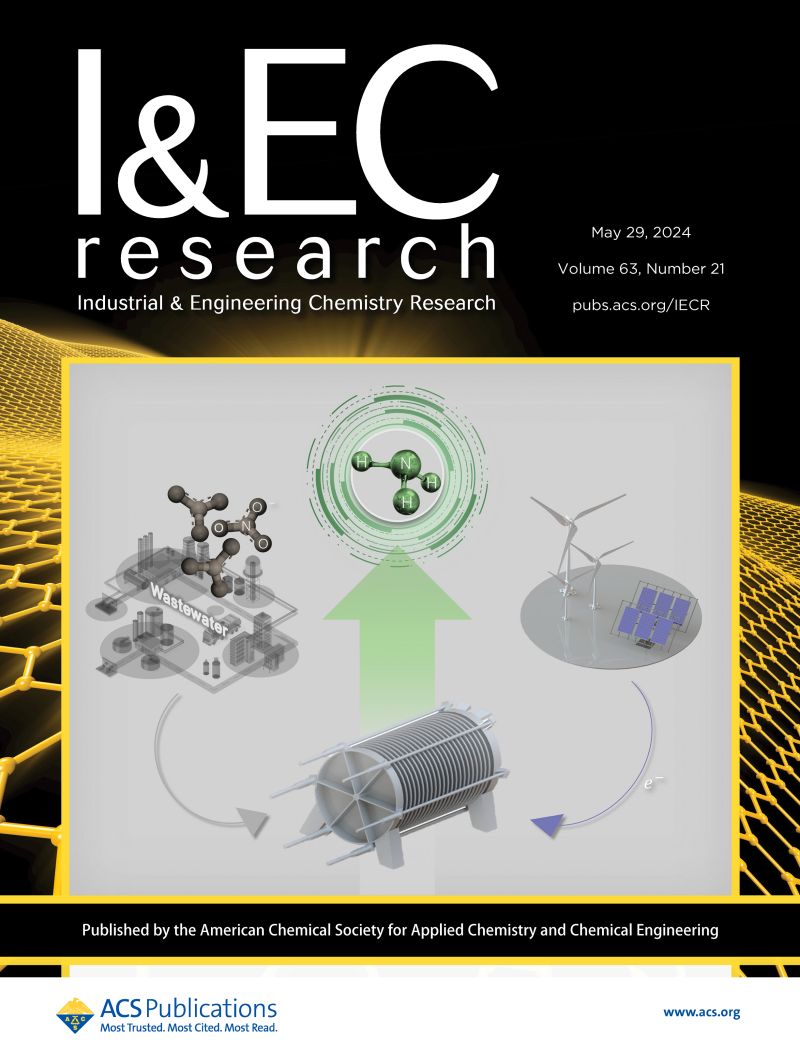Numerical Study of Self-Diffusion Coefficients for H2, O2, CO, and CH4 in Transcritical CO2 with Molecular Dynamics Simulation
IF 3.8
3区 工程技术
Q2 ENGINEERING, CHEMICAL
引用次数: 0
Abstract
During the CO2 fracturing process, the primary gases involved include O2, CO, CO2, and CH4. However, data on the self-diffusion coefficients of gases in transcritical CO2 are scarce, and empirical equations specifically proposed for the diffusion of small-molecule gas in transcritical CO2 are lacking. In this work, molecular dynamics simulations were used to calculate the self-diffusion coefficient of gases solute (H2, O2, CO, CH4) in transcritical CO2 at temperatures ranging from 280 to 310 K and a pressure of 75 atm. The results indicated that the temperature, density, and viscosity are the main factors affecting the self-diffusion coefficients of gas solutes. Moreover, an Arrhenius relationship was observed between the diffusion coefficients and the temperature. Therefore, we derived new parameters for an empirical equation to calculate the diffusion coefficients in transcritical CO2, achieving a mean relative error of 5.71%. Subsequently, we compared the derived equation with eight commonly used empirical equations, finding that the new equation is well-suited for calculating the self-diffusion coefficients under transcritical conditions.

求助全文
约1分钟内获得全文
求助全文
来源期刊

Industrial & Engineering Chemistry Research
工程技术-工程:化工
CiteScore
7.40
自引率
7.10%
发文量
1467
审稿时长
2.8 months
期刊介绍:
ndustrial & Engineering Chemistry, with variations in title and format, has been published since 1909 by the American Chemical Society. Industrial & Engineering Chemistry Research is a weekly publication that reports industrial and academic research in the broad fields of applied chemistry and chemical engineering with special focus on fundamentals, processes, and products.
 求助内容:
求助内容: 应助结果提醒方式:
应助结果提醒方式:


